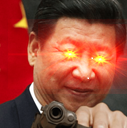This is a concise answer I found online, but it only confuses me more.
“Because profit can only come from human labour, as more and more capitalists invest in the new machinery the average labour time required to produce each commodity falls. This is what makes the rate of profit fall, as the ratio of surplus value to investment falls across the whole system.”
My understanding of this paragraph is that as machines play more and more a role in production less human labor is needed to produce the commodity, but I dont get how that lowers profit. My first thought it, don’t machines allow more money to be made? As capitalism develops we are reaching a point where 90%+ jobs in some industries will be replaced by machines, needing less people and less overall investment for the profits you’re getting. The entire reason is that it makes more profits right? Employers at least in the US save a ton just from not needing to pay for employees healthcare and other benefits, there are a lot of incentives in replacing people with machines.
I am sure these questions sound totally moronic to you comrades who have read capital volume three, but I hope you can see where I’m coming from and let me know what I’m getting wrong. I would really like to understand this, but it’s pretty intimidating to get into and wrap my head around some of this stuff. Thanks guys.


Firstly it is important to note that machines cannot create value. Only labor can do that. Here we don’t speak of the price which is better understood as momentary exchange value. The exchange value of a commodity at any given time can fluctuate around the real value, the latter being determined by the average socially necessary labor to produce said commodity, but it will never in the long run permanently diverge from it.
Now that we have established how value is created we realize that investment in machinery that replaces labor is bound to - in the long run, as that machinery becomes generally adopted by all producers - create a fall in the value of commodities produced with said machinery. In the short term this or that individual capitalist may increase their profits but competition means that any such advantage can only be temporary.
As time goes on an equivalent increase in profit will necessitate more and more investment into new machinery. In order to keep rates of profit (that is the ratio of profit to investment) high the capitalist is forced to depress wages, cut costs everywhere they can thus worsening labor conditions, or otherwise manage to acquire the raw materials they need at below cost, e.g. by colonization, theft and exploitation derived from imperialism.
None of this is sustainable and is one of the primary causes for the inevitable, cyclical and ever worsening crises of capitalism.